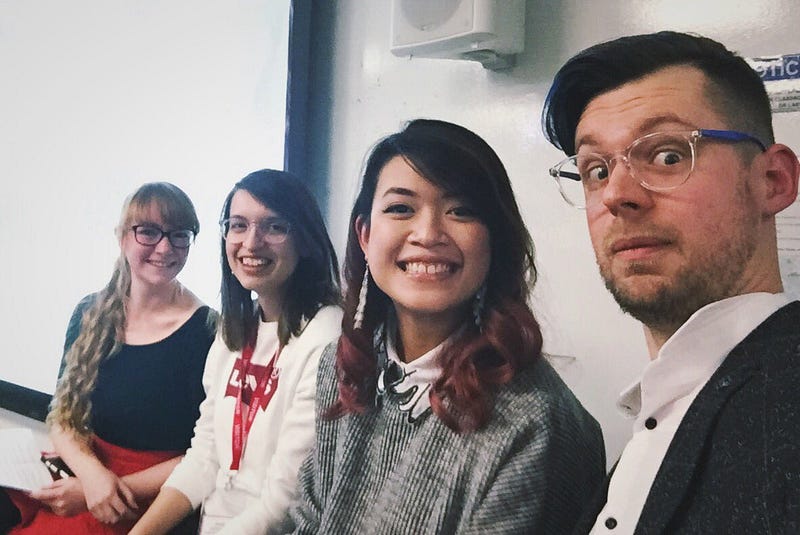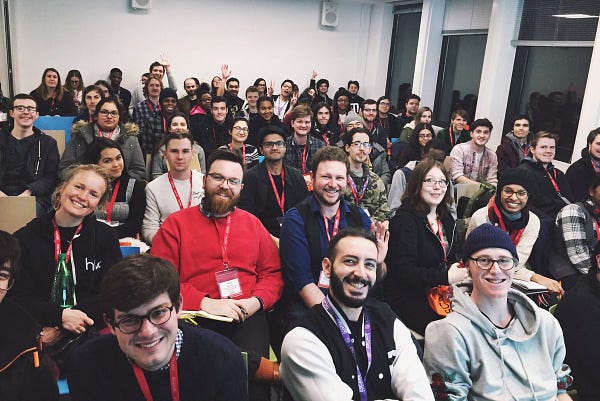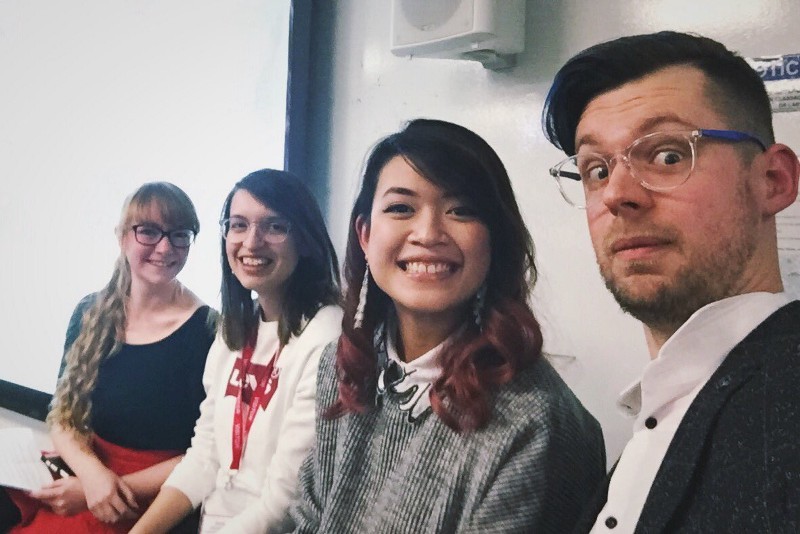
I went up to London yesterday to attend an event about finding your perfect role and starting your career in the games industry. It was a great talk with some really cool people on the panel discussing their roles in the industry, how they got into games and their personal experiences in the industry right now. The panel consisted of Jess Hider @JessHider, Adrienne Law @sulkymoanyface, Anisa Sanusi @studioanisa and Chris Wilson @crwilso. Below is a summary of everything I took away from the talk.
Roles
There are so many roles in the games industry and a few of them are really in demand such as tech artists, UI programmers, physics programmers and UI sound designers. There are some you may not have thought about such as accountant and HR manager. There’s bound to be something perfect for you. In a big company, you might even have multiple producers working on one game with each one focusing on looking after specific features.
There are about 2,000 games companies in the UK at the moment. This means there is quite a lot of opportunity for you out there, you just have to go and find it and network with people.
Working For A Studio
Be nice! Work well in teams. Communication is key. You have to be able to get along with people. You’ll be spending most of your waking time in the week with your colleagues so you have to get along and talk to each other when there is a problem. If you don’t communicate, emotions will bubble under the surface until they boil over and it can get messy.
Good companies want you to be T shaped. They want you to specialise and be really great at one particular thing and then expand out so that you have a general knowledge of lots of other useful things. It’s great to have your passion and to be working on that, but it’s even better if you can cultivate a transferable skill set.
Getting A Job

Find events to go to throughout the year such as the BAFTA events that are happening. Network and meet cool like-minded people at these places. People are generally happy to chat with you if you just put yourself out there. Talking to strangers is never very easy but everyone is in the same boat.
People are more likely to respond to your emails or messages if you are polite and are perhaps providing some value upfront. They might not reply just because they’re so busy so don’t feel afraid to send a follow-up email without seeming pushy. Be polite, get to the point with the important info and give a clear subject to make it easier for the person to get back in touch with you.
Think about your online presence and the reputation that will create. Everyone seems to know everyone in the industry and word spreads quickly if you’re tweets are racist or you’re just not a nice person online.
If you’re an aspiring composer, you should learn how to do much more than just compose music. At the indie level of the industry, you’re much more valuable as someone who knows how to implement your music, how to use middleware like Wwise, how to create triggers in Unity. The more value you bring, the more value you’ll be worth to the team.
When you’re making your demo reel, you need to capture the viewer’s attention in 30 seconds or less. Put your best work at the start and wow them with something special and something they’ll remember you by.
If you have to write a CV to apply for a job, keep it to 1 page and tailor it for that specific job. If you’re an artist looking to work on a space game, don’t put your drawings of orcs all over the CV. Replace them with those awesome space battleships you drew last week. Put the most relevant skills for that job up at the top so that they don’t have to read through your life story just to see what you’re good at. Your CV should be simple, to the point and easy to read. You can try and make it stand out but unless you’re going for an art or design job, there’s not really much point. Make sure you name your pdf with your actual name and include links inside the pdf to your website and work.
Once you’re in the room for an interview, the company is looking at you as a person. They’ve already seen your CV and the work you can produce so they’re really seeing if you will be a good fit for the team. Companies would rather have a hole in their team than an asshole on their team. A great question to ask in interviews is if there is a training budget. You’ll still have to be proactive in finding great courses and events to go to and you’ll still have to pitch as to why it’s worth sending you, but it’ll be great for the company and for your skills and progress to attend events.
People care about the results. Nobody is really interested in the tools you use except to check that you’re capable of using the standard software they use in the studio. Show them results and they’ll be happy. Focus, put in the work and be super proactive. If you can do that, you already stand a much better chance of getting a role in the industry and 90% of other people.
Tasks I’ve Taken Away From The Event
- Learn Wwise
- Learn to implement music in Unity
- Branch out a bit into the world of UI sound design
- Look up game industry events happening this year
- If I build my own simple game from scratch and document the whole process, that will cover learning Wwise and Unity and will make me a much more valuable person on a team.
